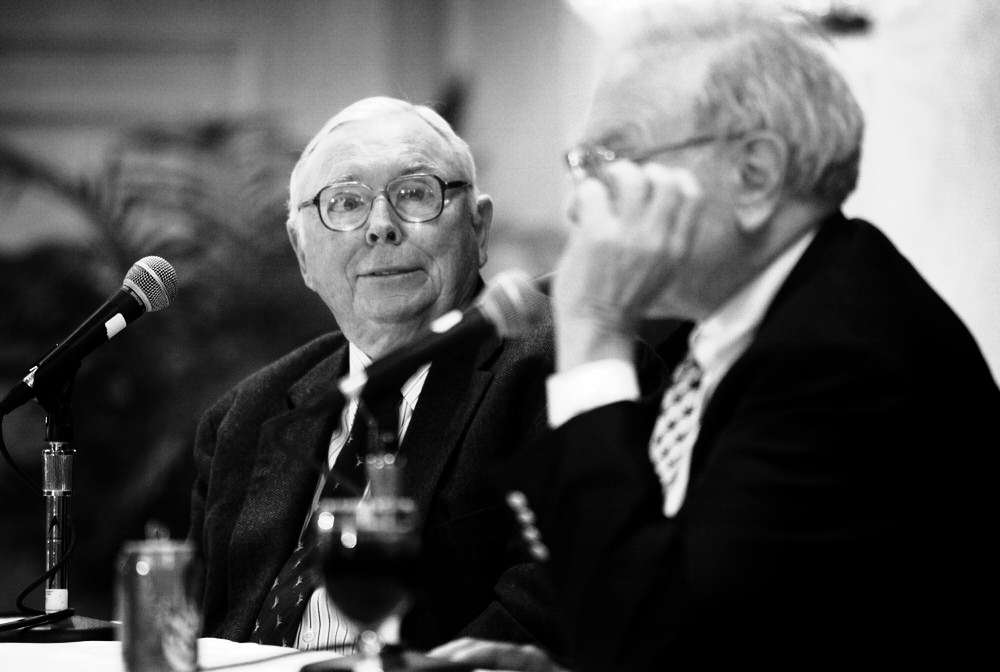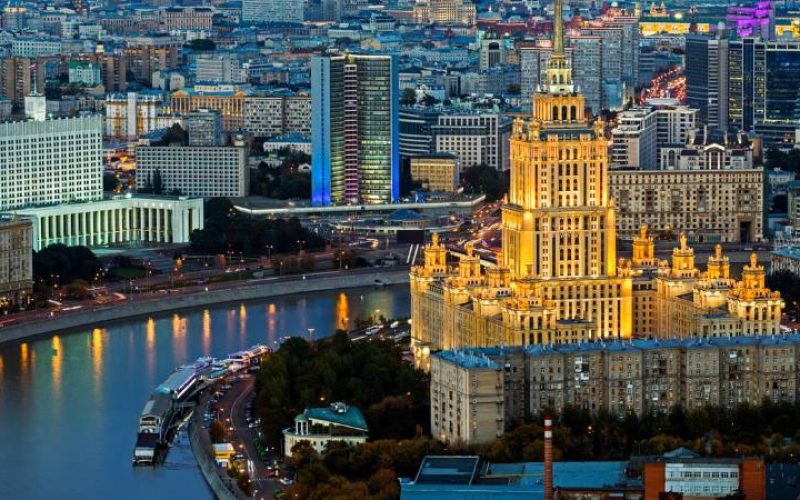by Kristina Hooper, Invesco Canada
How might the Russia-Ukraine crisis impact inflation? Could freezing Russia from SWIFT hurt markets? What will central banks do next? Learn more in our assessment of recent economic sanctions.
As fighting continued in Ukraine over the weekend, a long list of countries implemented a long list of economic sanctions against Russia. Questions are pouring in about what this all means for markets, for inflation, and for the global economy. Below, we address the most common questions given what we know at the moment.
How will the Russia-Ukraine crisis impact inflation?
As was mentioned in a previous blog, we expected a significant upward pressure on the prices of a number of commodities, including oil, natural gas, wheat, corn, palladium, aluminum, and other metals. The Russia-Ukraine war has already caused a sharp price shock in energy, grains, and metals. Now, sanctions on Russia raise risks of even higher prices and possible interruptions in the supply of many commodities. Energy is at the epicentre of the impact.
While energy has only an approximate 7.5% weighting within the U.S. Consumer Price Index (CPI), it has an impact on many other items, as it is a cost component of a wide variety of goods and services.1 For example, the price of oil is a cost component of takeout food (home delivery costs) and home appliances (transportation costs). Energy prices (such as electricity) even factor into the cost of operating a factory, increasing the cost of items produced in that factory.
It is difficult to assess the precise impact on U.S. CPI, but we have observed a positive correlation between U.S. oil prices and U.S. CPI. In other words, we expect this crisis to add to inflationary pressures. However, we still expect to see inflation peak around the middle of the year and then start to moderate as other inflationary pressures recede. The bad news/good news is that consumer sentiment is weakening meaningfully, and inflation-adjusted wages are falling, which causes us to anticipate reduced demand for goods and services — this would help alleviate inflationary pressures.
How is this affecting bond markets?
U.S. credit spreads are still tight and could remain that way.2 Not surprisingly, the Russian bond market was hit hard. Investors flocked to “safe haven” bonds such as U.S. Treasuries. Developed world bond markets have continued to price in a rapid tightening by the U.S. Federal Reserve (Fed) and other central banks. Central bank tightening plans may change as a result of lower global growth, but the U.S. Treasury market suggests a greater awareness of heightened inflation (for example, the 5-year inflation breakeven went above 3% for the first time in its history).3
How have markets reacted to past military conflicts?
Market performance has varied greatly during previous conflicts and usually also depends on the ongoing economic situation. For example, the Yom Kippur war of 1973 led to a quadrupling of the oil price, high inflation, recession, a squeeze on profits and a sharp decline in the value of bonds and equities.4
On the other hand, when the U.S. and its allies invaded Iraq in 2003, equity markets continued higher, partly because the invasion had been long-anticipated and partly because equity markets were just exiting the bursting phase of the dotcom bubble.5
This time, energy prices are rising, which presents a threat to household budgets and business profits (except for the energy sector). Also, the disruption to Russia, Ukraine, and Belarus will impact trade flows, which could further dampen the global economy, especially Europe. The extent of the hit to global gross domestic product (GDP) depends upon how long the conflict lasts, but we suspect it could amount to 0.5%-1.0% less global GDP this year – enough to accentuate the ongoing deceleration but not enough to cause recession (except for in those countries in the immediate vicinity). Much of this may already be priced in to markets.
Could freezing Russia from SWIFT hurt markets?
First of all, let’s define SWIFT – it is the Society for Worldwide Interbank Financial Telecommunications. It is a messaging system that enables rapid, secure financial transactions, and it’s the dominant global system for banking transactions.
Russia is very reliant on SWIFT: According to the Russian National Swift Association, approximately 300 banks and other financial institutions in the country utilize the SWIFT system, and Russia is ranked second (behind the United States) by number of users of the platform.6 Russia is so heavily dependent on SWIFT because of the high level of energy it exports denominated in U.S. dollars. There has been reluctance to ban Russia from SWIFT because of the dramatic impact it would have — it would restrict Russia’s access to financial markets globally and drive up oil prices by essentially preventing Russia from selling its oil internationally. Some worry it could create global financial systemic risk.
However, Russia’s increasingly aggressive actions have prompted more economic punishment in recent days, with the United States and the European Union banning some Russian banks from SWIFT. Prior to this action, the only country banned from SWIFT was Iran; the action had a very substantial impact on the country, causing a one-third drop in foreign trade, specifically sharply reducing its oil exports.7
In the case of Russia, it is important to note that it has not been fully excluded from SWIFT – the exclusions impact specific banks, which appear intended to make it harder to evade the prior specific sanctions on those banks. Energy exports are apparently carved out from these sanctions, though there is some risk that energy exports may be harder to transact and settle, contributing to higher energy, metals, and grains prices.
How might sanctions impact Russia’s economy and war effort?
The West has frozen much of the Central Bank of Russia’s (CBR) foreign assets, thought to be roughly half its $630 billion in foreign reserves held in the Western financial system.8 This should make it much more difficult for the CBR to defend the ruble. When markets opened, the Russian ruble plunged nearly 30% to an all-time low versus the U.S. dollar.9
In response to the ruble’s drop, the CBR announced a large hike in interest rates — from 9.5% to 20% — to help defend the ruble.10 Since then, the ruble has recovered about half its earlier drop. The CBR has also reportedly banned the sale of domestic securities held by non-residents. Further capital controls, including on Russian residents, are a rising risk, given the difficulty of directly defending the ruble with foreign exchange reserves.
For historical context, there have been a few times in recent history that the West has imposed sanctions freezing parts of the Central Bank of Russia’s official foreign exchange reserves. These freezes have been imposed on Venezuela, North Korea, and Iran (Iran’s foreign assets were frozen during the 1979 U.S. embassy hostage crisis.) All three of these countries became increasingly isolated from the international financial system. However, both Iran and Venezuela were still able to carry on their oil operations, and Iran and North Korea were able to maintain nuclear programs.
We expect dramatic pressure on the Russian financial system and economy, comparable to a major financial crisis (including sharply higher inflation and an accompanying squeeze on the spending power of the average Russian). Runs on the banks and the Russian ruble cannot be ruled out – in fact, they may already have begun. Sharp interest rate hikes, already enacted, are so far proving ineffective. Domestic deposit freezes and capital controls cannot be ruled out – restrictions on foreigners are already being imposed by Russia.
There will also likely be a significant movement to divest Russian assets, adding to economic pressure and isolation. For example, the Norges Bank Investment Management, the world’s largest sovereign wealth fund, just announced it would divest of all Russian assets. BP has indicated that it will divest itself of its stake in Rosneft, Russia’s state-near oil major, quite likely at large cost to its shareholders.
Some Western firms have indicated that they will cease operations involving Russia, including in logistics and delivery. These decisions seem likely to hit Russia’s real economy hard. It is important to stress that the impact of the conflict, while negative, is likely to be very localized with the greatest impact on Russia and Ukraine’s respective economies and markets.
The combination of financial sanctions, market and banking system pressures, and damage to the real economy may undermine Russia’s war effort over time, especially if there is a protracted ground war with continued strong Ukrainian resistance. There is some hope that these efforts will increase the chances of negotiations toward a settlement (Russia is likely to suffer a severe form of stagflation).
In summary, it is hard to know all the financial system ramifications of economic sanctions on Russia, especially banning Russia from SWIFT. We will have to follow the situation very closely as it evolves.
What will major central banks do?
The Russia-Ukraine crisis presents central banks with a dilemma: Should they respond to the threat of higher inflation due to rising energy prices (by raising rates more aggressively) or should they react to the decline in spending power and consumer confidence (by slowing monetary tightening)?
Markets seem to believe that the U.S. Federal Reserve will become more dovish. While fed funds futures are still suggesting there could be six rate hikes this year, the expectations for a 50 basis point rate hike in March have fallen.11 We ourselves agree these conflicting pressures could tilt the Fed towards a 25 basis point hike rather than 50 basis points in March and that the European Central Bank may remain on the fence for longer.
If financial markets remain volatile (and bearing in mind the risk of united consequences for the financial system from the sanctions on Russia), the Fed may choose to hold rates at its March policy meeting as it waits for more clarity on the implications. We believe this is unlikely, but possible as an extreme measure.
How can Europe keep its economy going strong if Russian oil and gas is cut off?
The reality is that Europe will be negatively impacted by the economic sanctions imposed upon Russia, but it is unclear how much. For example, European natural gas prices are on the rise as I write this .12 If that were to persist, it could be quite problematic. That’s why European Union energy ministers are meeting today to discuss ways to help maintain energy supplies. There is no magic solution, but Europe may need to resort to fiscal and monetary stimulus to help it manage its economy through this crisis.
Europe’s economic prospects would be severely damaged if Russia decides to cut energy exports in retaliation (Russia supplied 29% of Europe’s crude oil imports in 2020, along with 39% of its petroleum product imports and 80% of its pipeline gas imports).13 Russia had reportedly increased gas supplies to Europe as it launched the invasion of Ukraine. It has also said that it will only use non-economic retaliation to Western economic sanctions – though of course it denied plans to invade until hours before the war began. Alternatives to Russian gas exports through liquefied natural gas exports from Qatar and the U.S. are already being substituted (though Qatar’s production is a fraction of that of Russia).14
How might different sectors/asset classes be affected?
- Commodities exported by Russia and Ukraine should be clear beneficiaries in our view, as prices are likely to go up given expectations of reduced supply. This includes oil, natural gas, palladium, aluminum, wheat, and corn.
- Canadian stocks could benefit from rising commodity prices, given the economy’s reliance on resource extraction. Indeed, firming raw materials prices have been an important link in a chain of positive events for Canada. Simply put, what’s good for materials prices is generally good for the Canadian economy. Global growth, early-stage commodity prices (as measured by the CRB Raw Industrials Index), the loonie, and Canadian stocks typically move in the same direction across time. The same can be said for Australian assets.
- European stocks are likely to face conflicting pressures. Several major eurozone financial stocks have sizeable Russian operations and are already under pressure. Also, Europe is more at risk of recession, especially if energy supplies are cut. However, if the conflict is short-lived, the risk of higher inflation, somewhat tighter monetary policy than today even if more dovish than previously expected, and potentially steeper yield curves could be more beneficial for indexes heavier in value, cyclical, and commodity stocks – such as EU and UK indexes, than indices heavier in growth and tech stocks, like the U.S.
- The U.S. dollar, Swiss franc and Japanese yen should continue to benefit from their “safe haven” status in turbulent environments. The Chinese yuan is also benefitting from this period of uncertainty, perhaps because it is distant from Europe and also because it has better relations with Russia. The Russian ruble should continue to face headwinds.
- Gold should benefit, in our view, from its status as a hedge against geopolitical risk.
- Cybersecurity stocks may benefit. We are already seeing cyberattacks as part of this conflict, and there is growing concern that could escalate. In particular, there is fear that Russia could initiate a major cyberattack on the United States or European Union.
- Aerospace and defense stocks are also likely to benefit. Germany has announced that it will now respect the North Atlantic Treaty Organization’s commitment to dedicate at least 2% of GDP to military expenditures, versus its range of 1.19%-1.36% between 2014 and 2019.15 Many other European countries are below that 2% target and are likely to make efforts to reach it. Not only would that boost military expenditures, it could also provide a medium-term boost to the European economy, depending upon how it is financed.
- We believe there is still opportunity in emerging markets, but one needs to be selective in that space; we would avoid Russia and Ukraine during this crisis. Distance from the theatre of war (and the ire of Russian President Vladimir Putin) could be an advantage which favours Asia and Latin American markets, in our view.
- For stocks in general, the announcement of stringent sanctions against Russia suggests the VIX could rise again. We believe that levels above 40 are a good sign for future returns.
Co-authored by Paul Jackson, Arnab Das, Brian Levitt and Talley Léger
1 Source: U.S. Bureau of Labor Statistics, as of September 2017
2 Source: Bloomberg, L.P. Based on the Bloomberg U.S. High Yield Corporate Bond Index Option Adjusted Spread with the Bloomberg U.S. Corporate Bond Index
3 Source: Bloomberg, L.P., as of 2/25/22
4 Source: Bloomberg, L.P.
5 Source: Bloomberg, L.P., based on the S&P 500 Index
6 Source: CBC News, “How expelling Russia from SWIFT could impact the country. And why there’s reluctance to do so,” Feb. 26, 2022
7 Source: NPR interview with Alexandra Vacroux, Executive Director of the Davis Center for Russian and Eurasian Studies at Harvard University
8 Source: CNBC, “Biden administration expands sanctions against Russia, cutting off U.S. transactions with central bank,” Feb. 28, 2022
9 Source: Bloomberg, L.P.
10 Source: Central Bank of Russia as of Feb. 28, 2022
11 CME FedWatch Tool
12 Source: Bloomberg, L.P.
13 Source: BP Statistical Review of World Energy, July 2021
14 Source: U.S. Energy Information Administration 15 Source: NATO
This post was first published at the official blog of Invesco Canada.














